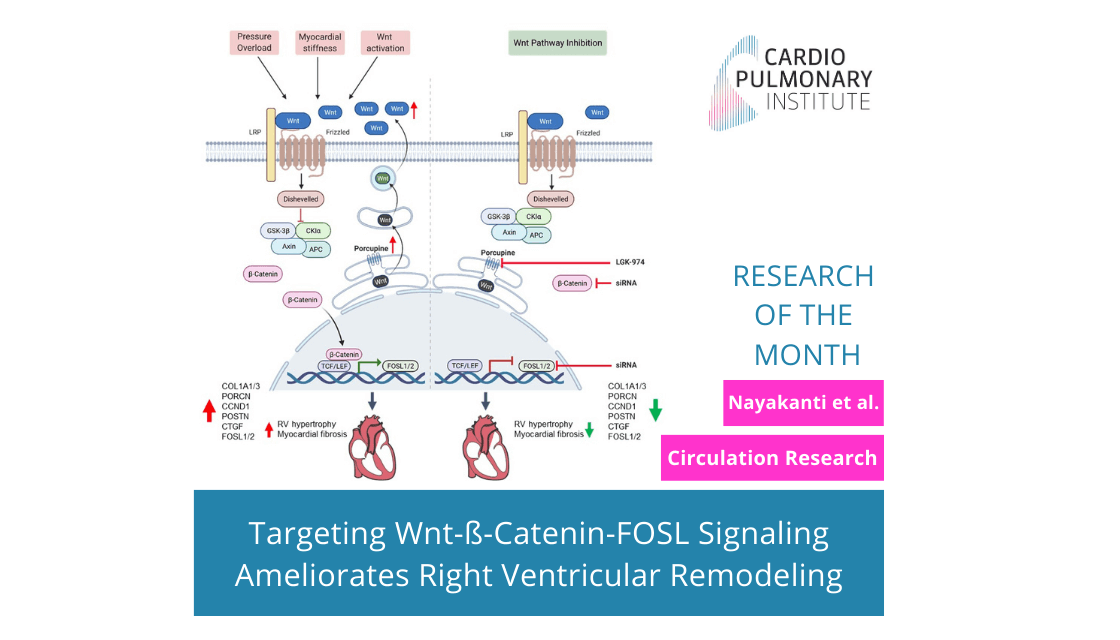
The discovery of molecular pathways involved in right ventricle (RV) adaptation to pressure overload is of tremendous importance for the development of therapeutic strategies against pulmonary arterial hypertension (PAH). Here, by combining basic research and translational approaches, we provide evidence that the Wnt/β-catenin signaling is increased in cardiac fibroblasts upon RV pressure overload and represents a relevant pathway to be targeted in PAH. Activation of Wnt/β-catenin signaling was evident in mice and rats with pulmonary artery banding, a model of RV dysfunction independent from lung vascular remodeling, as well as in the monocrotaline rat model of PAH. Genetic inhibition of β-catenin or of the AP-1 factors FOSL1/2 in combination with WNT3A stimulation significantly regulated collagen synthesis and other remodeling genes in cardiac fibroblasts. Increased substrate stiffness induced the phenotypic switch of cardiac fibroblasts, as well as activation of the Wnt/β-catenin pathway. Importantly, pharmacological inhibition of Wnt using the PORCN inhibitor LGK-974 attenuated fibrosis and cardiac hypertrophy leading to improved RV function in both pulmonary artery banding and monocrotaline models of RV overload. In conclusion, this study highlights the role of Wnt signaling in RV remodeling and the potential therapeutic strategies offered by Wnt inhibition in patients with PAH with deteriorating right heart function.
Find the full article here:
Source: May 2023 (cpi-online.de)